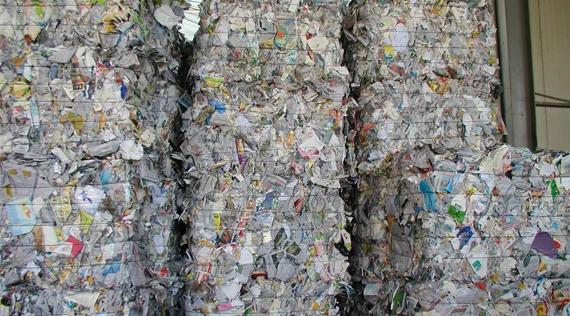
SEATTLE (Waste 360): Companies across the globe are developing new ways to reduce plastic waste, which has become a growing problem of concern. Some are working to clean up recycling streams, some are using recycled plastic to create new products, and some are exploring new and innovative technologies.
One company bringing its advanced technology to market is Carbios, a France-based biotech startup that has created a biological solution to fully recycle plastics. Carbios’ technology leverages enzymes that fully break down polyethylene terephthalate (PET) plastic waste and polyester fibers feedstock to successfully produce consumer-grade, 100 percent recycled plastic.
“Carbios is the first and only company to combine two sciences that are solutions for the end of life of plastics,” says Martin Stephan, deputy CEO of Carbios. “We make a circular plastics economy possible—it’s a circular economy to a point where large PET producers are viewing this [process] as the future of the industry.”
The technology’s process consists of a few steps. First, the PET plastic waste is combined with water and Carbios’ proprietary enzymes, heated up at low temperature and churned. Then, within a few hours, the enzymes decompose the plastic, transforming it into the material’s “basic building blocks” called monomers. The monomers are then isolated, separated, purified and used to produce consumer-grade, 100 percent recycled plastic that’s similar in quality to virgin material.
“At the pilot scale, we have demonstrated that it takes about 10 hours to depolymerize 90 percent of the feedstock made of PET waste,” explains Stephan. “We don’t think it’s necessary to go up to 90 percent on the industrial scale, however, so we only need a few hours for the depolymerization reaction before we send the material through the other steps.”
The technology, which is expected to launch in 2021 through the operation of a large demonstration plant, took quite a few years to develop. In 2012, Carbios launched ambitious funding, partially by a European leading venture capital firm named Truffle Capital and partially by French grant subsidies, for the development and testing of its technology.
About 60 scientists worked together on the technology, testing it and perfecting it over the course of a few years. Then, in 2017, Carbios and L'Oréal, a worldwide beauty industry leader, entered into a five-year agreement to jointly found a consortium for bio-recycling of plastic on an industrial scale.
“L'Oréal has been committed to an ambitious sustainable packaging program for several years now,” said Philippe Thuvien, vice president of packaging and development for L'Oréal, in a statement. “We currently use up to 100 percent recycled plastic for several different products. We’ve decided to go even further: with this innovative Carbios technology, L'Oréal is helping to make bio-recycling available on an industrial scale. It’s a wonderful opportunity to protect the environment, and this consortium will also help boost the circular economy.”
The consortium received additional support in April 2019, with the addition of Nestlé Waters, PepsiCo and Suntory Beverage & Food Europe. Under the terms of their agreement, the consortium partners’ ambition is to bring Carbios’ PET-enhanced recycling technology to the market and increase the availability of high-quality recycled plastics to fulfill their sustainability commitments. The collaboration includes technical milestones and support for the efficient supply of consumer-grade, 100 percent recycled PET plastics for global markets.
Courtesy: www.waste360.com
| Copper Scrap View All | |
| Alternator | 0.32 (0) |
| #1 Copper Bare Bright | 3.76 (-0.01) |
| Aluminum Scrap View All | |
| 356 Aluminum Wheels (Clean) | 0.73 (0) |
| 6061 Extrusions | 0.64 (0) |
| Steel Scrap View All | |
| #1 Bundle | 460.00 (-15) |
| #1 Busheling | 480.00 (-15) |
| Electronics Scrap View All | |